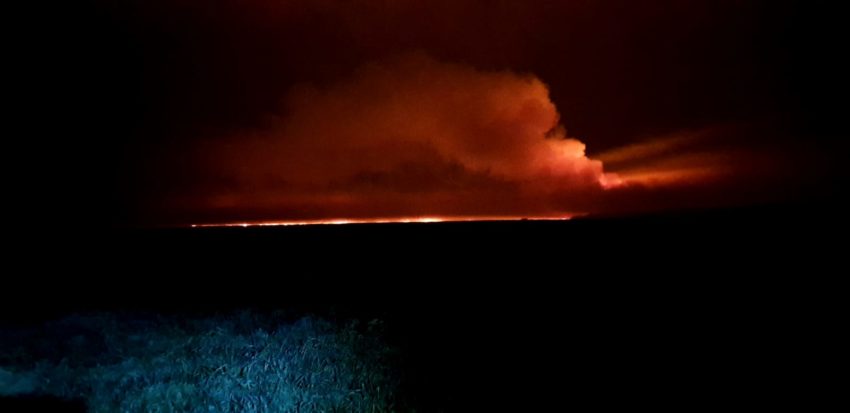
The Polish Territorial Defence Forces battle alongside firefighters to contain fires as they ravage the Biebrza National Park in Poland.
Real-time data, providing fire location and fire spread information, is collected by the unmanned aerial systems Flyeye, designed by WB GROUP, a technology concern from Poland, partly owned by the Polish Development Fund.
The Flyeye UAVs are also helping the National Guard of Ukraine to monitor the Chernobyl Nuclear Power Plant Zone of Alienation. They have been used to detect the seats of fire during the fires extinction, as well as for the surveillance of the area after the fire elimination.
FlyEye is flying over the Biebrza National Park
Wildfires are ripping through Poland’s largest national park. Around 6,000 hectares of the Biebrza National Park are currently in flames as hundreds of firefighters attempt to get the blazes under control. As the terrain is extremely difficult to reach, such a vast area can be monitored only from the air.
The fire brigades in Poland are not supplied with the modern airborne systems to monitor vast areas in the country; the trained FlyEye operators from the Polish Territorial Defence Forces work together with the firefighters to prevent the fire spread with use of the advanced observation unmanned vehicles. The UAVs are equipped with a thermal camera that provide information about the precise fire location which enables the fire brigades to extinguish it.
In the case of a natural disaster of such magnitude, the effective cooperation of the fire brigades and the Territorial Defence Forces is crucial to craft an effective, coordinated response to emergencies by achieving an adequate information management.
Firstly, the FlyEye operators receive the information about a high threat area from a fire brigade member assigned to their team. Then, they deploy the unmanned aerial system to monitor the indicated terrain and provide the firefighters with the precise location of the seats of fire. In addition, the operators also indicate the fire spread direction.
The real-time data supplied by the FlyEye UAV not only helps prevent large-scale natural disasters by locating and detecting fires, but also significantly improves the safety of firefighters taking part in the rescue operations.
FlyEye in the Chernobyl Exclusion Zone
On April 21st 2020, the National Guard of Ukraine has announced that the FlyEye unmanned systems were monitoring the Chernobyl Nuclear Power Plant Zone of Alienation around the site of the Chernobyl nuclear reactor disaster. The system’s task is to detect people who illegally enter the Exclusion Zone.
Wind-whipped wildfires have recently raged perilously close to the exclusion zone at Chernobyl, while hundreds of firefighters were working to extinguish fires. The Polish unmanned systems have been used to locate the seats of fire in proximity of the closed Chernobyl nuclear power plant.
The Ukrainian authorities attribute the cause of fire to deliberate actions of villagers; consequently, the FlyEye unmanned systems help the National Guard of Ukraine to monitor the zone. The thermal camera mounted on the platform enables operators to locate intruders who are moving around the area.
Several FlyEye unmanned observation systems have been delivered to various military units and the National Guard in Ukraine.








